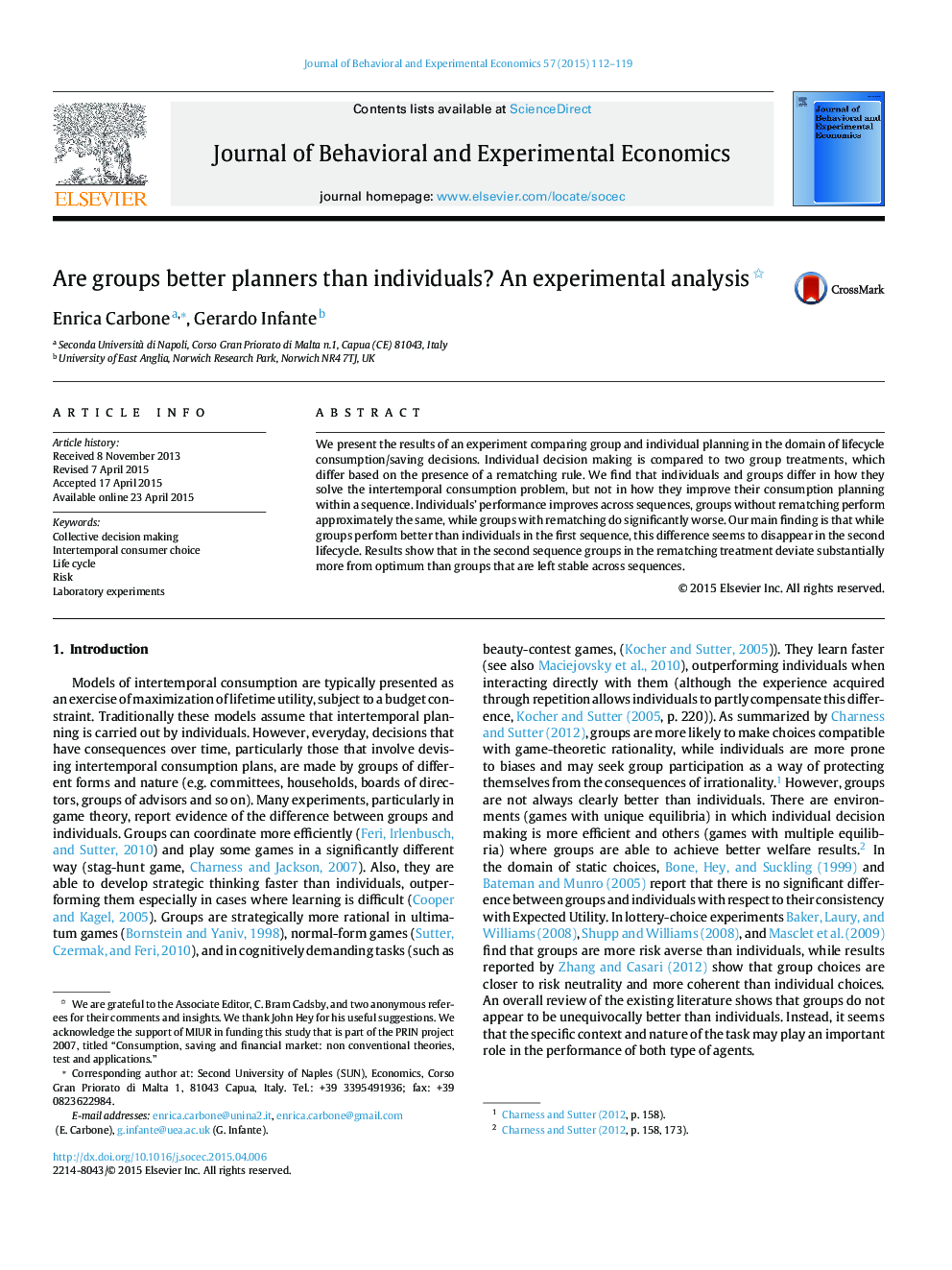| Article ID | Journal | Published Year | Pages | File Type |
|---|---|---|---|---|
| 881840 | Journal of Behavioral and Experimental Economics | 2015 | 8 Pages |
•Groups and individuals are compared in the domain of lifecycle consumption decisions.•Agents differ with respect to unconditional deviations.•In the first lifecycle groups deviate significantly less from optimum.•Unlike groups, individuals display a significant learning effect in sequence two.•Compared to sequence one, groups with rematching deviate significantly more.
We present the results of an experiment comparing group and individual planning in the domain of lifecycle consumption/saving decisions. Individual decision making is compared to two group treatments, which differ based on the presence of a rematching rule. We find that individuals and groups differ in how they solve the intertemporal consumption problem, but not in how they improve their consumption planning within a sequence. Individuals’ performance improves across sequences, groups without rematching perform approximately the same, while groups with rematching do significantly worse. Our main finding is that while groups perform better than individuals in the first sequence, this difference seems to disappear in the second lifecycle. Results show that in the second sequence groups in the rematching treatment deviate substantially more from optimum than groups that are left stable across sequences.
